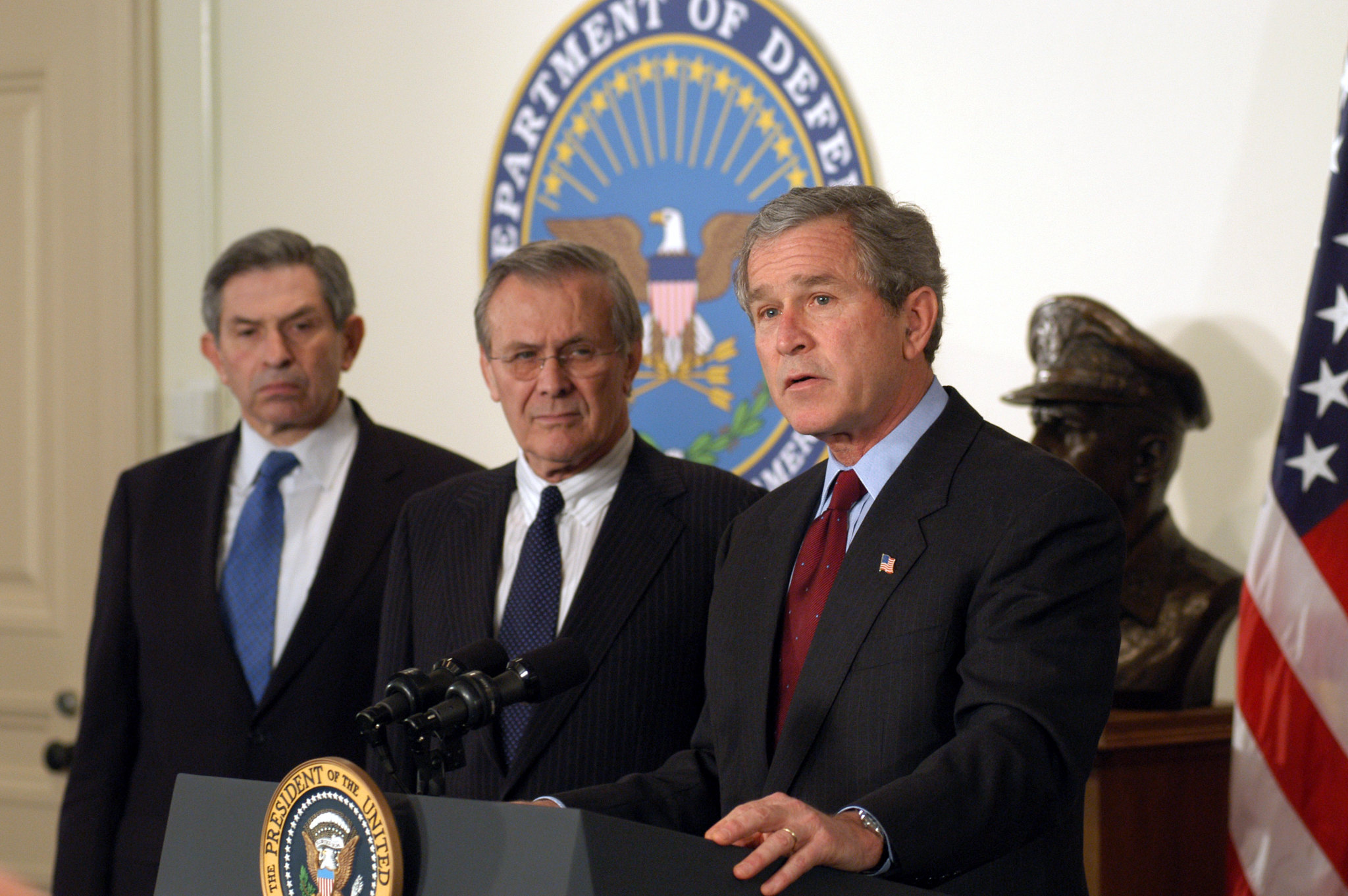9/11 and Iraq: The Making of a Tragedy
The United States went to war in Iraq on a false pretense that it was somehow avenging those killed on Sept. 11.

Published by The Lawfare Institute
in Cooperation With

Twenty years after the al-Qaeda attack on Sept. 11, 2001, the United States is still involved in a war in Iraq that it started. President George W. Bush was obsessed with the Iraqi dictator Saddam Hussein and deliberately misled the American people about who was responsible for the 9/11 attack.
I was in the White House on Sept. 12, 2001, on the staff of the National Security Council. I recently came across my pocket diary for 2001. In it, I wrote brief notes on each day’s activity in the White House where I was senior director for the Near East. I met with National Security Adviser Condoleezza Rice every day and Bush almost as frequently because of the second intifada. We were constantly trying to contain the violence and prevent a wider regional conflict. In reviewing the diary I was intrigued by two notes.
On Sept. 14, I was with Bush when he had his first phone call after 9/11 with British Prime Minister Tony Blair. Bush immediately said he was planning to “hit” Iraq soon. Blair was audibly taken aback. He pressed Bush for evidence of Iraq’s connection to the 9/11 attack and to al-Qaeda. Of course, there was none, which British intelligence knew.
On Sept. 18, a week after 9/11, Saudi Ambassador Prince Bandar bin Sultan came to the White House to see Bush. The meeting took place on the Truman Balcony. Vice President Richard Cheney and Rice were there as well. My note says the president “clearly thinks Iraq must be behind this. His questions to Bandar show his bias.” Bandar was visibly perplexed. He told Bush that the Saudis had no evidence of any collaboration between Osama bin Laden and Iraq. Indeed their history was of being antagonists.
Afterward, Bandar told me privately that the Saudis were very worried about where Bush’s obsession with Iraq was going. The Saudis were alarmed that attacking Iraq would only benefit Iran and set in motion severe destabilizing repercussions across the region. The Saudis pressed Bush to come out publicly in support of a Palestinian state as he had privately promised Crown Prince Abdullah al Saud.
On Sept. 28, Bush received Jordan’s King Abdullah. The king pressed the president to take action to restart Israeli Palestinian peace talks. He argued that the Palestinian conflict was the driving force behind al-Qaeda’s popularity and legitimacy. But the president was focused on Iraq.
The United States did go to war with Iraq soon enough. The Bush administration was eager to mobilize the anguish of the 9/11 attack to support the war. Despite the intelligence community’s unequivocal conclusion that Iraq had nothing to do with either 9/11 or al-Qaeda, the administration let Americans believe the contrary.
Consequently, the United States went to war in Iraq on a false pretense that it was somehow avenging those killed by al-Qaeda. A Washington Post poll conducted two years after 9/11 dramatically illustrated the story: 69 percent of Americans at the time believed Saddam Hussein was “personally” involved in the 9/11 attack. Even more staggering, 82 percent believed Saddam provided assistance to Osama bin Laden. Both were utterly false.
One lesson of the past 20 years is the imperative of an informed public. Sadly, we are still a long way from an enlightened public.





